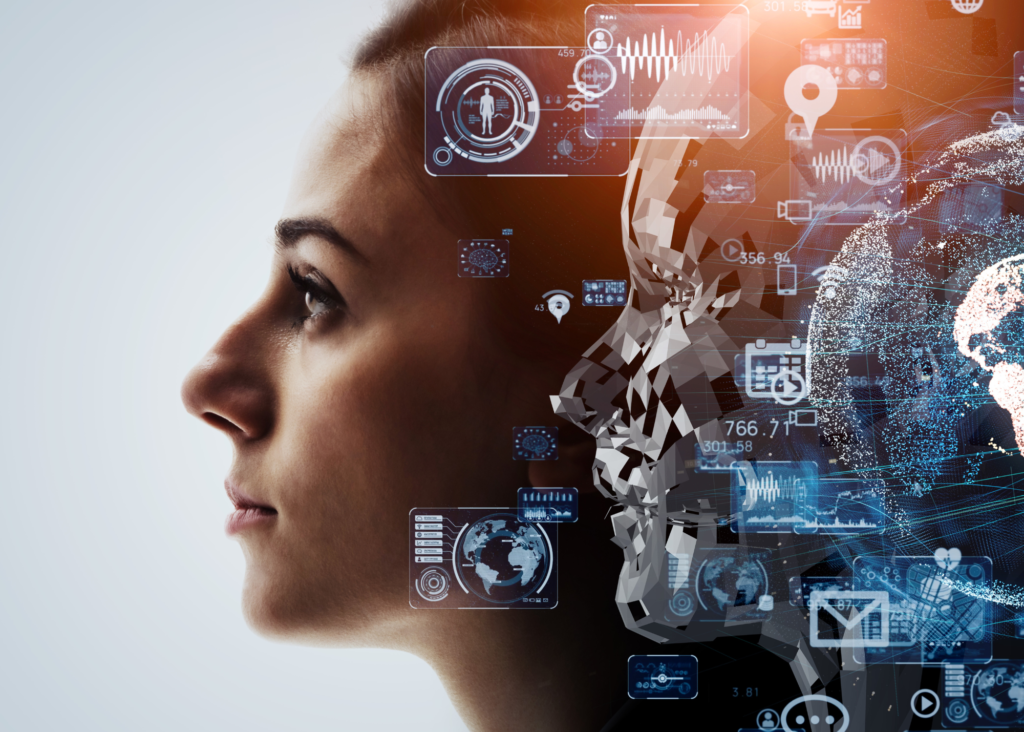Artificial Intelligence (AI) is a fascinating technology that is changing the world as we know it. AI is becoming more and more advanced, and it is starting to be used in many different industries. However, there is a common misconception that AI will eventually replace humans in all aspects of life, including creative jobs. In this article, we will explore why AI can never truly replace humans in the creative sector and why it would be impossible for AI to take over creative jobs.
Creatives need not worry
It’s important to understand foremost what we mean by the creative sector. The creative sector includes jobs that require a high level of creativity, imagination, and artistic expression. Examples of jobs in the creative sector include writers, artists, musicians, and designers.
One of the primary reasons why AI can never truly replace humans in the creative sector is that creativity is an inherently human trait. Creativity is the ability to generate new ideas, concepts, or theories that are original and have value. It’s the ability to see things in a new way and to make connections between seemingly unrelated things. These are all things that are difficult for AI to replicate.
While AI is good at processing and analyzing data, it can’t generate new ideas on its own. AI can only create based on what it has been programmed to do. It’s like a paint-by-numbers picture. AI can fill in the colors, but it can’t create a new image that has never been seen before.
Another reason why AI can never replace humans in the creative sector is that creativity often involves emotion and empathy. Emotion and empathy are important elements of storytelling and music. Humans are great storytellers because we can express emotions and create empathy with our audience. It’s difficult for AI to replicate this because it can’t feel emotions in the same way that humans can. AI can’t create a connection with an audience in the same way that a human storyteller can.

Moreover, creativity often involves making mistakes and learning from them. Mistakes are an essential part of the creative process because they help us to learn and grow. AI, on the other hand, can only create based on what it has been programmed to do. It can’t make mistakes or learn from them in the same way that humans can.
While AI is becoming more and more advanced, it can never truly replace humans in the creative sector. Creativity is an inherently human trait, and it’s difficult for AI to replicate. AI can process and analyze data, but it can’t generate new ideas on its own. Creativity often involves emotion and empathy, which are difficult for AI to replicate, and mistakes are an essential part of the creative process. So, while AI can help humans in the creative sector, it can never fully replace them. As we continue to develop AI, it’s important to remember that it should augment human intelligence, not replace it.
Integration with the blockchain and verifiable data
The emergence of artificial intelligence (AI) has led to a surge of interest in its integration with blockchain technology, with investors seeking opportunities in both markets. However, for AI to reach its full potential as a tool for Web3, its data must be verifiable, according to Space and Time CTO Scott Dykstra. He argues that transparency, traceability, and verifiability are crucial for web3 and blockchain technology to function effectively, and that AI should not be considered a universal solution but rather a tool that can aid in certain situations.
Space and Time’s protocol called Proof of SQL was developed to verify the authenticity of incoming data, which can be checked by external verifiers such as smart contracts or oracle networks. The task of ensuring the quality of the data becomes insurmountable for one person or a team of people to manage effectively as AI needs a vast amount of data to improve and learn. Inaccurate data fed into AI can lead to disastrous consequences, as AI’s output will only be as good as its input.
The importance of verifiable data in AI is underscored by Microsoft’s multi-year, multibillion-dollar investment in OpenAI, which has granted the company unique access to AI. Azure, Microsoft’s cloud computing service, is an exclusive provider of cloud services to OpenAI’s research, API, and products. Space and Time has partnered with Azure, aiming to bridge Web2 and Web3 datasets using analytic tools familiar to Web2, fully integrated into an enterprise’s off-chain data architecture.
While AI can help streamline workflows and increase productivity at work, it does not replace the “human factor” of reasoning, situational awareness, individuality, empathy, and creative energy. Therefore, AI should not be considered a universal solution but rather a tool that may help in certain situations. Space and Time’s Proof of SQL protocol can help developers verify that incoming data has not been tampered with, which is especially critical when handling large amounts of data, such as in DeFi protocols.
AI’s integration with blockchain technology presents an exciting opportunity for both markets. However, the importance of verifiable data cannot be overstated, as it is the foundation of trust and reliability for both Web3 and AI. The investment by Microsoft in OpenAI underscores the significance of AI, while Space and Time’s Proof of SQL protocol offers a solution for verifying the authenticity of incoming data. Ultimately, AI should not be considered a universal solution, but rather a tool that can aid in specific situations, while the “human factor” remains indispensable in decision-making processes.


